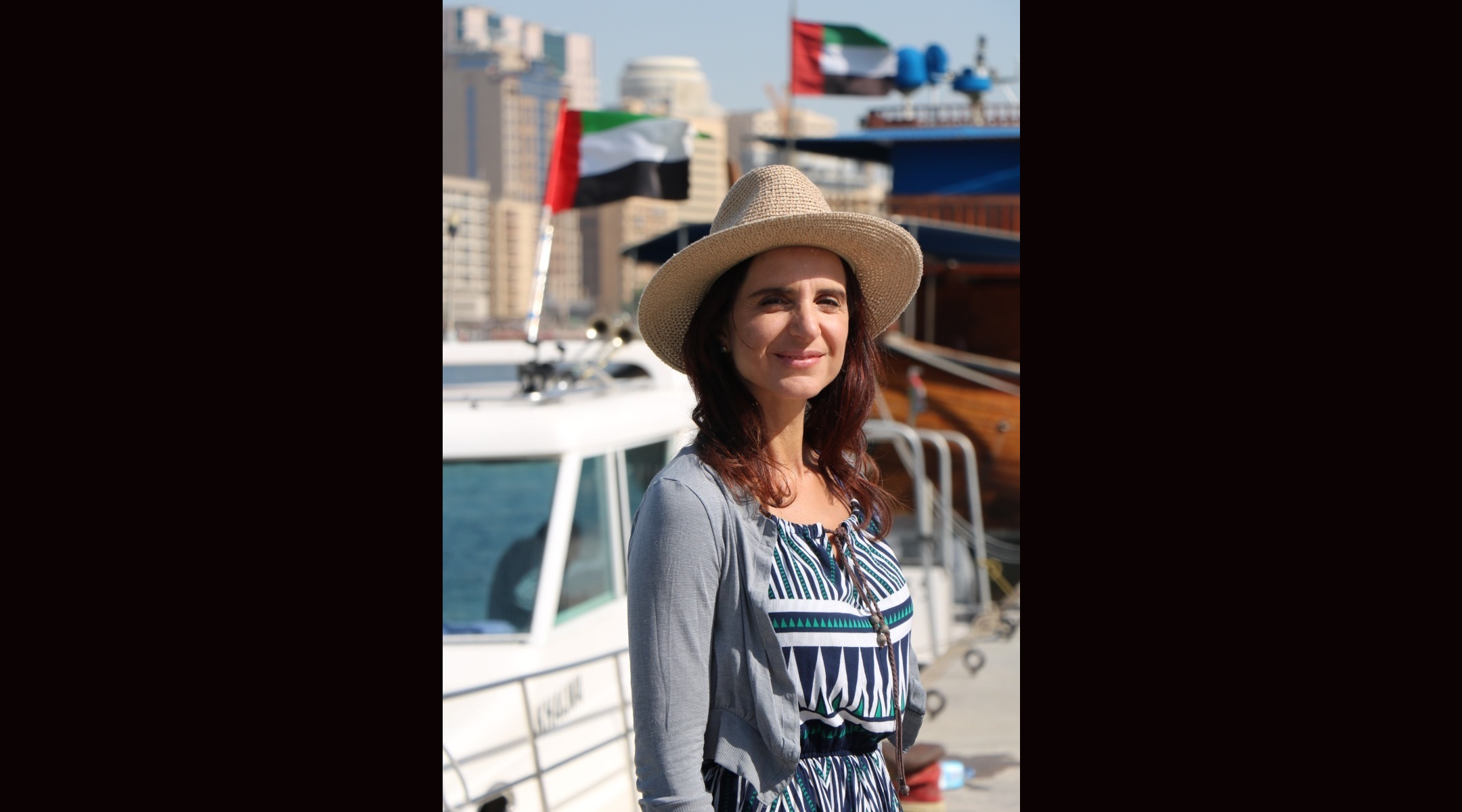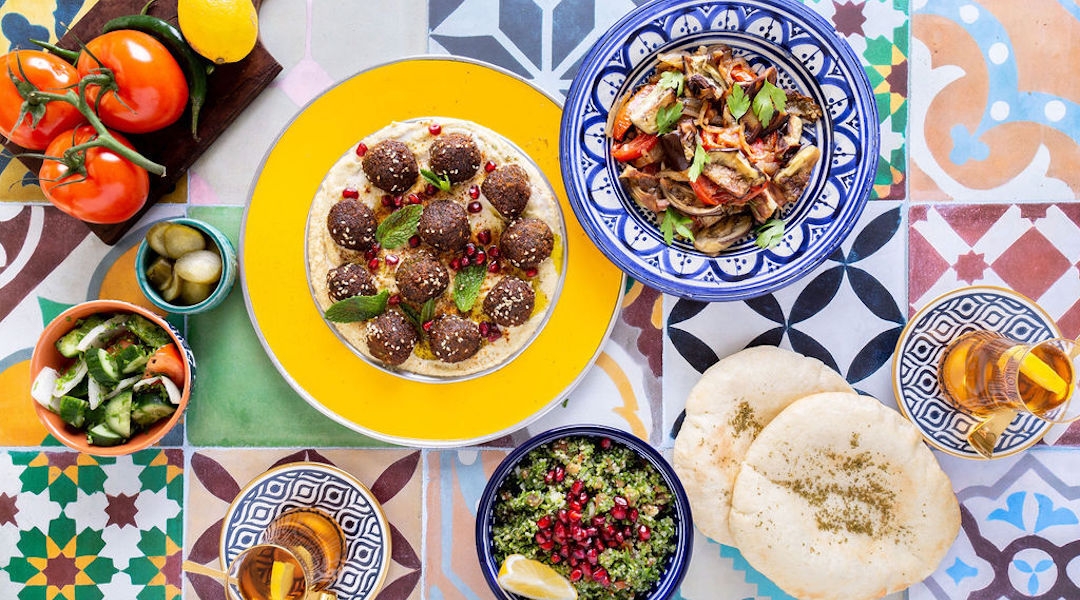DUBAI, United Arab Emirates (JTA) — Last year, Israel and the United Arab Emirates signed a treaty establishing diplomatic relations. But for more than a year earlier, diners in the UAE had already been finding their way to Jewish culture — via the home cooking of a South African expatriate.
Elli Kriel, a sociologist by training who moved here in 2013 when her husband was transferred to the Emirates for work, began serving kosher food to Jewish tourists years ago out of her home kitchen. Now she has become the go-to kosher chef in the UAE at a time when Israeli tourists have begun streaming into the country.
Last year, Kriel launched Kosherati, which sells kosher-certified Emirati cuisine, as well as fusion Jewish-Emirati dishes. And she opened a kosher pop-up restaurant in December at the Hilton Al Habtoor City, a Dubai hotel. Before the restaurant had to close because of rising COVID-19 rates, it employed three chefs and 12 other employees. Kosher supervision was provided by the Orthodox Union.
“[For] those who wanted kosher foods, coming to eat the foods that they could get in their home communities [while] in Dubai was a bit of a waste,” said Kriel, sitting in the Hilton Habtoor’s lobby. “Because you’re a tourist, you want to experience the flavors of Dubai.”

Kriel, who is from South Africa, came to Dubai in 2013. (Courtesy of Kriel)
When Kriel’s family arrived in Dubai, there were some 70 Jewish families in the UAE and little communal infrastructure, which made it challenging for the family to continue keeping kosher. Kriel would fill suitcases with kosher foods like frozen meat and cake mixes when she traveled, and would ask visitors from South Africa to do the same when they came to the UAE. Once they were settled, the family started hosting dinner parties for local Jews.
Word spread. Observant Jewish tourists and business travelers sought out Kriel and asked her to cook kosher meals, which she would do for free. When the UAE held a high-profile interfaith conference in 2018, organizers turned to her to feed a Jewish delegation.
Similar events followed in 2019, and Kriel decided to set up a website to market her cooking.
“I got a call saying that there is a group of rabbis who will not eat a thing because it’s not kosher, and that I should do something about it,” she said regarding the 2018 conference. “I then cooked for this group three meals a day for seven days from my kitchen.”
While Kriel was building up a base of kosher eaters, she found another set of potential customers among local Muslims. Emiratis who had traveled to the United States or Europe and couldn’t find halal food often turned to kosher restaurants, which abide by similar dietary restrictions. Some developed a liking for traditional Jewish cuisine.
“They missed this taste when they came back to the UAE,” Kriel said. “I had two sets of audiences. I had those who wanted Jewish foods, not necessarily kosher foods, and also had those who wanted kosher foods, but not necessarily Jewish foods.”

One of Kriel’s desserts is a baklava cheesecake. (Courtesy of Kriel)
Kriel had long wanted to try her hand at traditional Emirati dishes, and began experimenting with kosher versions of them in 2019. When the pandemic began and Dubai locked down, she found more time to develop a repertoire. With the help of an Emirati friend, she exchanged recipes and began to create fusion dishes that combined Jewish and Emirati cooking.
One of Kriel’s offerings is the balaleet kugel, which combines an Emirati vermicelli and egg breakfast meal with the Ashkenazi Jewish sweet noodle dish. Similarly, her chebab blintz melds the Jewish crepe delicacy with chebab, an Emirati pancake. And Kriel’s “bread of peace,” named in honor of the normalization agreement, combines challah with khameer, an Emirati spiced pita-like bread.
Demand for Kriel’s food has risen with the normalization of relations with Israel, as more than 50,000 Israeli tourists flew to the UAE before travel to and from Israel was suspended due to the pandemic. Kriel hopes the influx will eventually lead to kosher ingredients being sold in Dubai. Last year saw her move from her home kitchen into the Hilton Habtoor, and she also plans to expand her business into Abu Dhabi.
“Within six months, of course, it’s going to be a completely different environment — we’ll be able to go into the supermarket, and you will find kosher products,” she said. “You’re going to have a section that says ‘kosher.’ So we will get there.”
JTA has documented Jewish history in real-time for over a century. Keep our journalism strong by joining us in supporting independent, award-winning reporting.






